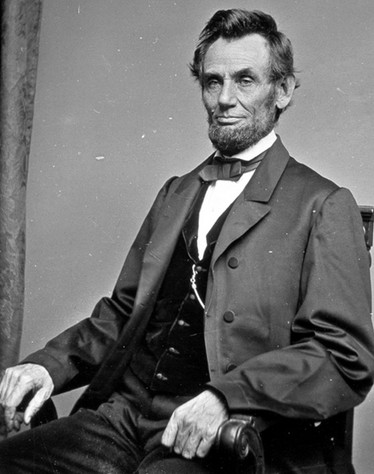
I’m in the middle of reading Team of Rivals by Doris Kearns Goodwin, the book upon which Steven Spielberg based his film Lincoln. It is an excellence journey through a 50 year period during which the modern United States and a future super-power was born.
The book describes how Abraham Lincoln was selected as the presidential candidate for the new Republican Party, then invited three rival politicians he’d just beaten in the race for the nomination to become cabinet members to create a broad church political alliance as the northern Union faced the Confederate South in the Civil War.

Lincoln comes across as an extraordinary man: kind, humorous, self-effacing and generous of spirit to rivals and subordinates – yet hugely ambitious, calculating and single-minded in his approach to personal achievement and doing what he believed needed to be done to protect the nation’s interests. What is clear, is that one of the strands of Lincoln’s political genius was his communication skills. So here’s my view of some of them:
Story telling. Lincoln was known throughout his life, from childhood onwards, as a great storyteller. He always had an anecdote to tell to make a telling point and win an argument. He had the knack of being able to explain complex thoughts in simple terms, through telling a story that illuminated the point he wanted to get across. He also used simple, memorable language that caught the imagination. It’s no surprise his favourate playwright was Shakespeare.
Humour. Lincoln was a great joke teller and enjoyed making other people laugh. But often, he used humour to make vital political points. Also, he appeared not to use humour as a weapon, but to disarm critics and bring people onto his side.
Timing. Lincoln perfected the art of knowing when to make a point and when to stay silent, even when others around him were clamouring for him to get stuck in to a political argument. He showed a keen sense of when and where to say the right thing, for maximum effect. In politics this is vital. For example, when he announced that slaves would be emancipated, he achieved cricital acclaim, but said that, if he had made the same announcement six months before, he would have been lambasted and problably thrown out of office.
Audience. Lincoln was acutely aware of when to say what to whom. Many times, the audience he was giving a speech to was not the audiece he was actually trying to influence. He was also acutely aware of the power of the media and the need to take account of their prejudices and agendas, as much as his political rivals and public mood.
Surprise & symbolism. Just when your audience thinks you will do one thing, do something different. The Gettysberg Address is a speech given by Lincoln at the consecration of the Soldier’s National Cemetery, created to mark one of the bloodiest battles of the Civil War. The speaker before him gave a speech that lasted for two hours, going into great detail about the battle and its historic significance. Audiences were used to very long speeches at that time.
When Lincoln got up to speak next, the crown of several thousand people would not have been surprised to hear Lincoln talk for an hour or more. Yet he gave a speech lasting just two minutes. In it he powerfully reminded the audience of the principles behind the Declaration of Independence and reaffirmed his belief that the war would bring a “new birth of freedom”. The subtext here is that he was talking about the freedom of slaves.
In this way, he used another powerful technique – symbolism – saying the soldiers who died at Gettysberg ensured the survival of representative democracy, and used the moment to cement in people’s minds the rightness of achieving another political and social objective, to end slavery, something that was still contentious, even within the Union.
It’s clear, then that Lincoln was a brilliant communicator, and he was using techniques that are just as relevant today, to anyone who wants to get their message across, influence others and achieve what they set out to achieve.


